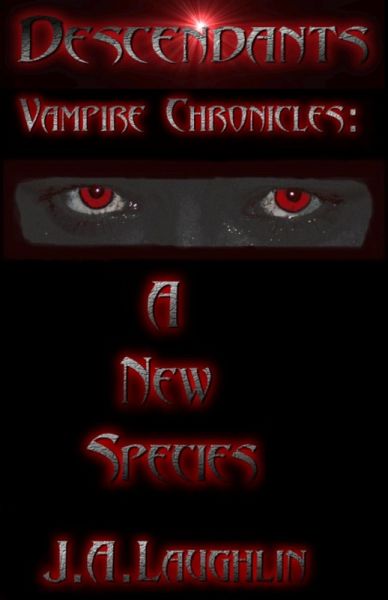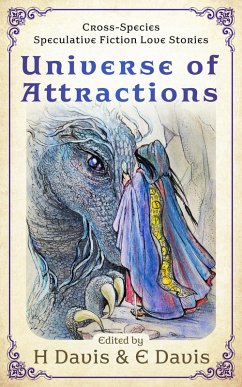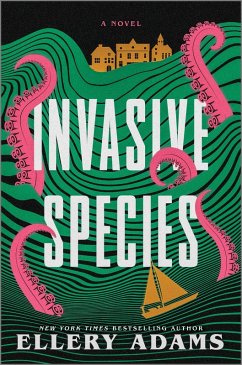
Descendants: Vampire Chronicles: A New Species (eBook, ePUB)

PAYBACK Punkte
0 °P sammeln!
Around fifteen thousand B.C., there were several species of hominids in existence. The predominant hominid at the time was Homo Sapiens Sapiens, or Modern Man. The next most populous was Homo Sapiens Neanderthalsis, or Neanderthal Man. Also in existence were Homo Sapiens Erectus, Homo Sapiens Rhodesiensis, Homo Sapiens Florensis and Homo Sapiens Idaltu. Modern Man (referred to from here on as human) was just beginning to build a civilization, while the Neanderthal were in their civilizations' decline after two hundred thousand years of development. Erectus was waning in the world and had a sma...
Around fifteen thousand B.C., there were several species of hominids in existence. The predominant hominid at the time was Homo Sapiens Sapiens, or Modern Man. The next most populous was Homo Sapiens Neanderthalsis, or Neanderthal Man. Also in existence were Homo Sapiens Erectus, Homo Sapiens Rhodesiensis, Homo Sapiens Florensis and Homo Sapiens Idaltu. Modern Man (referred to from here on as human) was just beginning to build a civilization, while the Neanderthal were in their civilizations' decline after two hundred thousand years of development. Erectus was waning in the world and had a small population in central China with a few stray clans and individuals scattered over the world. Rhodesien Man had a territory that covered the western edge of China to the northern reaches of India, covering the eastern most portion of the Middle East as well. While at times the encounters between humans and other hominids resulted in conflict and violence, most often it did not. The normal result of an encounter was trade and sharing stories and discoveries. Jewelry, textiles, tools, weapons and spices were exchanged on the market. Language was already complex and was able to encompass real items as well as abstract ideas. Religion was already a part of most cultures and all cultures had some sort of belief about life after death and spirit. Body art was already highly developed by the Neanderthal and was beginning to spread to humans. Neanderthal and humans alike were just beginning to work the softest of metals such as lead, gold and silver. We join a clan called the Baska. There are about two hundred adult humans with thirty elderly and seventy five juveniles that live in a part of west central Africa. The clan lives on the south west edge of the Congo jungle and is led by the eldest couple, Imamu and Camali. They have lived in the same location for many generations, but things are going to change, for them and the rest of the world. The emergence of a new species of hominid is near. Soon the species Homo Sapiens Desmodus will join the hominid family. Vampires are on the horizon. Kibwe was born and raised to the Baska. His sister Sanaa was just a year younger than him. His father taught him to hunt, fish, make tools and most of all how to be a good man. As Kibwe grew, he thought he would always be able to go to his father with any problems or questions. Unfortunately his father passed of multiple snake bites when Kibwe was just fourteen years old. His mother died a year later of sickness. Kibwe and Sanaa finished growing up relying primarily on each other and the clan leader, Imamu. While Sanaa stayed in the village or hunted after their mother's death, Kibwe often traveled with Imamu to the Luo villages to the east. He learned their language quickly and impressed Imamu with his ability to learn new things. At nineteen years old, Kibwe started going with the hunting parties. His father had taught him to hunt alone, but he quickly adjusted to the group hunts and found himself invited to join the most prestigious hunting party of the clan. Ochieng was the hunting party's leader and he taught Kibwe even more about the wildlife in the Baska hunting grounds. No one could ever deny that Ochieng was a very good hunter, but he had a jealous streak that made him hard to be around. If someone killed a bigger or better animal, or a larger number than Ochieng, he would not speak to them until he had out done their accomplishments. On this particular day, Kibwe is not hunting animals.
Dieser Download kann aus rechtlichen Gründen nur mit Rechnungsadresse in A, B, CY, CZ, D, DK, EW, E, FIN, F, GR, H, IRL, I, LT, L, LR, M, NL, PL, P, R, S, SLO, SK ausgeliefert werden.












